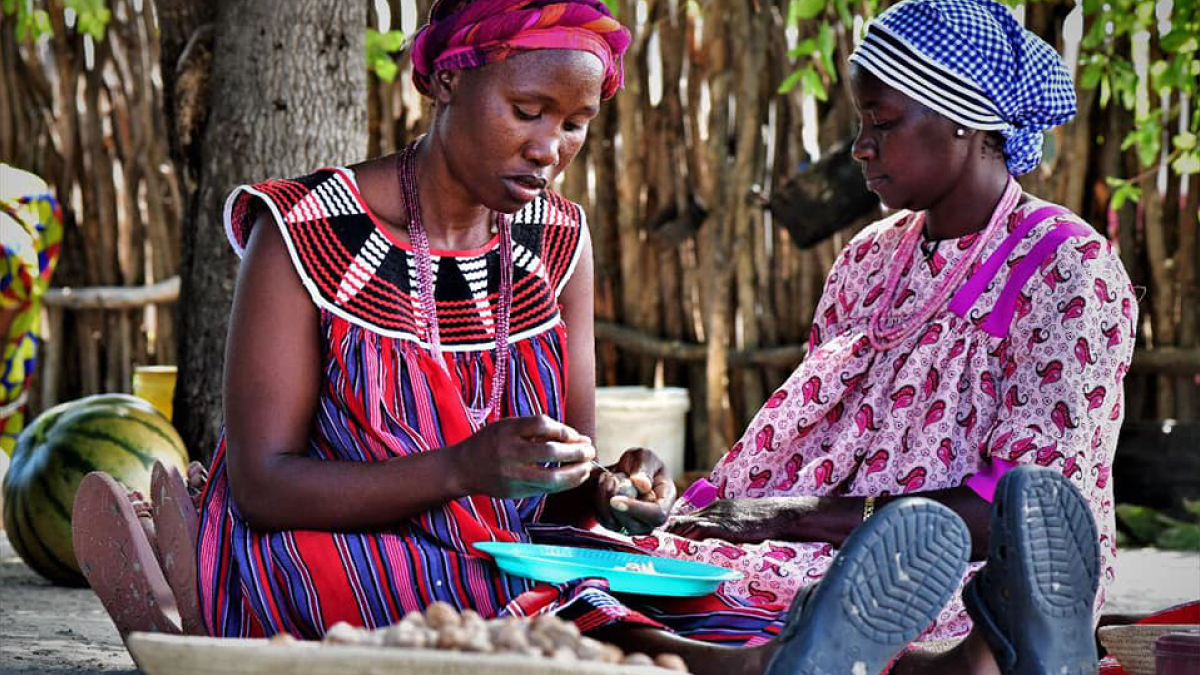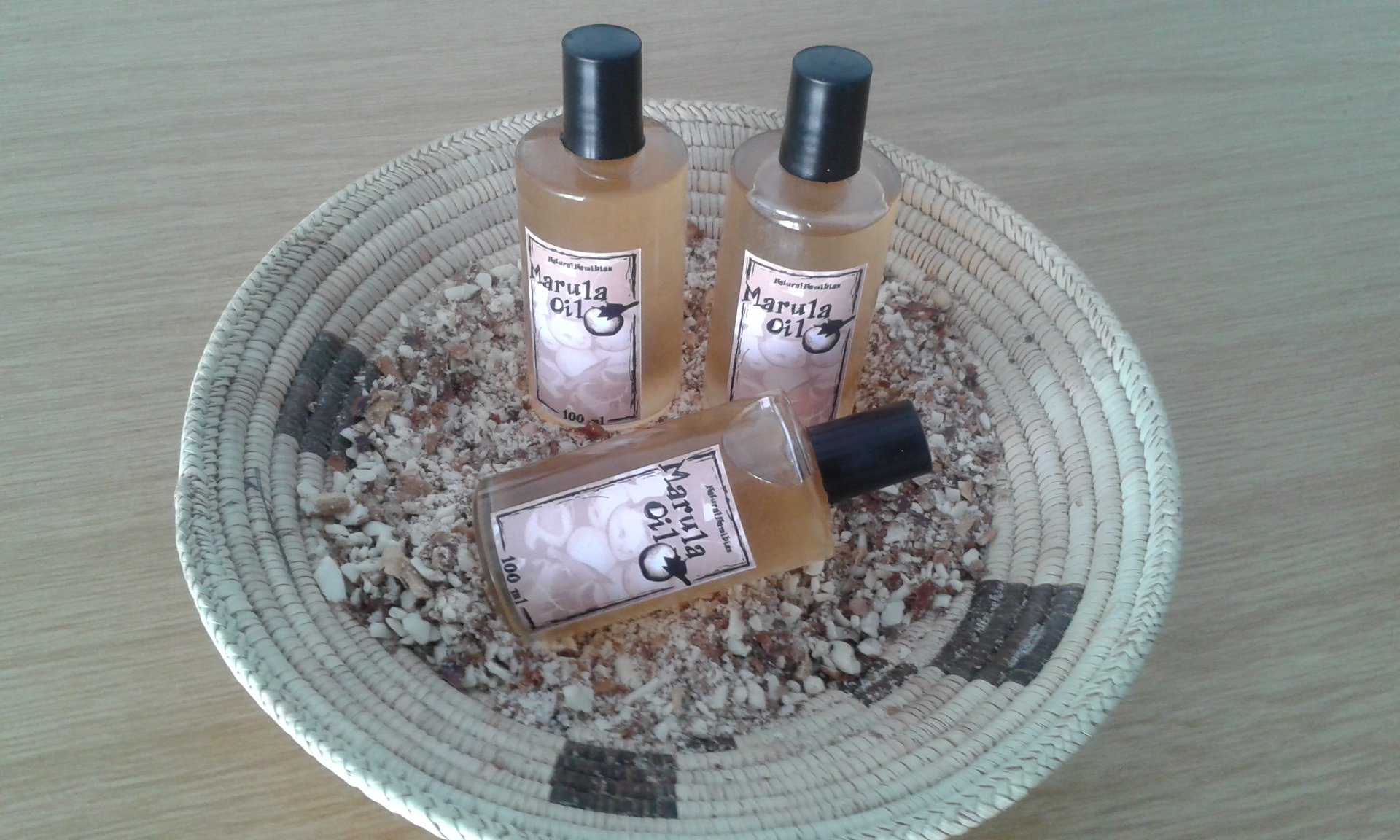The sustainable use and trade of indigenous plants has created valuable economic opportunities for 2,500 Namibian women and their communities.

© ©BioInnovation Africa, GIZ
The Eudafano Women’s Cooperative in Namibia extracts ingredients from seeds of indigenous plants such as marula, a medium-sized deciduous tree, for the domestic and international cosmetics industry.
Oil extracted from marula seeds is rich in elements that are essential for the preservation of human skin, making it an ideal ingredient for cosmetics.
The cooperative commercializes the marula and other plants in line with a set of guidelines on environmental, social and economic sustainability, known as BioTrade principles and criteria.
The term “BioTrade” refers to the supply and commercialization of goods and services derived legally and sustainably from a country’s biodiversity.
“We use the plants to support our livelihoods, while conserving them so that they sustain us for a long time,” said Martha Negumbo, the cooperative’s manager.
Ms. Negumbo said applying BioTrade principles enables the cooperative to “promote sustainability, equal sharing of benefits and respect for the rights of all actors, especially the local community.”

Marula kernals. © Eudafano Women’s Cooperative LTD
A matter of principle
BioTrade principles encourage sustainable trade and investment in developing countries’ unique natural resources, while ensuring their long-term conservation and enhancement.
More than 80 countries have implemented the principles to date, with several examples of successful adoption by governments, companies and communities.
The principles are aligned with key multilateral environmental agreements, notably the Convention on Biological Diversity (CBD) and the Convention on International Trade in Endangered Species of Wild Fauna and Flora (CITES).
They are also in line with the UN 2030 Agenda for Sustainable Development, the Paris climate agreement and the Nagoya Protocol on access and benefit-sharing of genetic resources.
“These principles empower local communities and cooperatives to protect biodiversity and benefit from it at the same time,” said Lorena Jaramillo, project manager of UNCTAD’s BioTrade initiative.
Tapping traditional knowledge
The Eudafano Women’s Cooperative established 22 years ago harnesses the community’s traditional environmental knowledge to promote the conservation of indigenous plants and prevent overexploitation.
“We value the marula tree. You won’t find people cutting it down, now that they know its benefits,” Ms. Negumbo said.
About 2,500 women working in 27 associations harvest marula fruits from wild trees and deliver their kernels and seeds to the cooperative’s factory, where oils are extracted through a combination of hand and machine processing.
Each year, the factory produces up to 12 tons of marula oil, which is sold to companies such as The Body Shop International.
It was the cooperative’s first global customer, attracted not only by the properties of marula oil but also by the rural women’s cooperative’s conservation efforts.
The cooperative carries out rainfed agriculture and advocates for the planting of more marula trees to promote the regeneration of local biodiversity.

© Eudafano Women’s Cooperative LTD
Changing local fortunes
Its revenues have increased over the years. In 2020, sales from marula kernels fetched the cooperative’s members about $158,000, a 14% jump from 2019. The cooperative empowers its members and their communities economically by ensuring they are paid fair prices.
The income to the members is seasonal, as the marula fruits are harvested seasonally, typically between May and November.
The cooperative, a leading producer of marula oil in the southern African region, is run by a board made up exclusively of women from the community.
It has set its sights on recruiting more members and training them on organic farming methods to boost both its production of marula oil and its conservation efforts.
Partnerships for success
The cooperative worked with the Centre for Research Information Action in Africa — Southern Africa Development and Consulting, a Namibian-based organization, to turn the marula fruit into an economically viable product.
The organization provided research and technological support that enabled the cooperative to serve both local and international markets.
The cooperative received further research and development support from PhytoTrade Africa, the southern African natural products trade association.
The partnerships opened new markets for the cooperative and helped it expand income opportunities for local communities.
The Eudafano Women’s Cooperative is currently working with the BioInnovation Africa Project implemented by GIZ to further improve management, sustainability, quality and pricing structures of Marula oil for export to Europe. Further partners under this cooperation are the companies Body Shop, Aldivia and the Gustav Heess Group.


